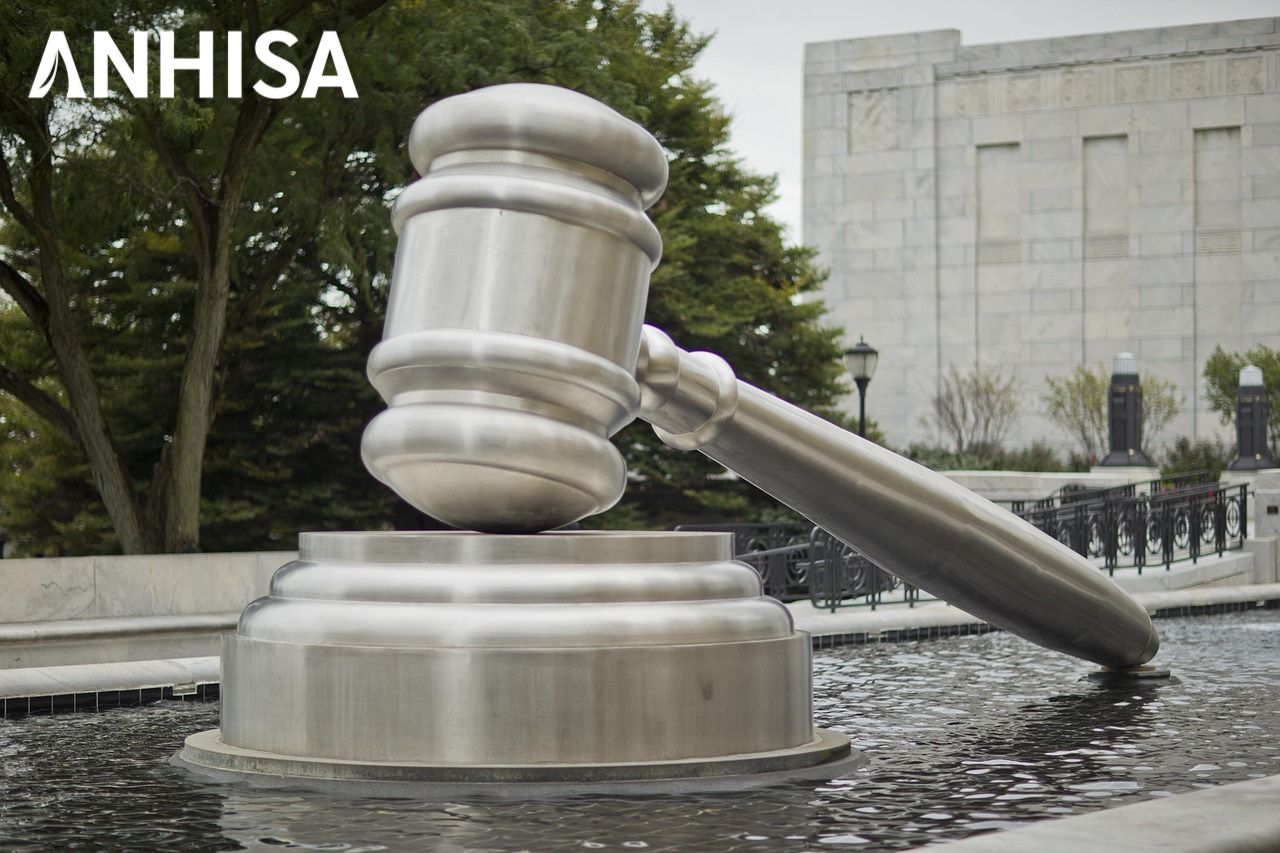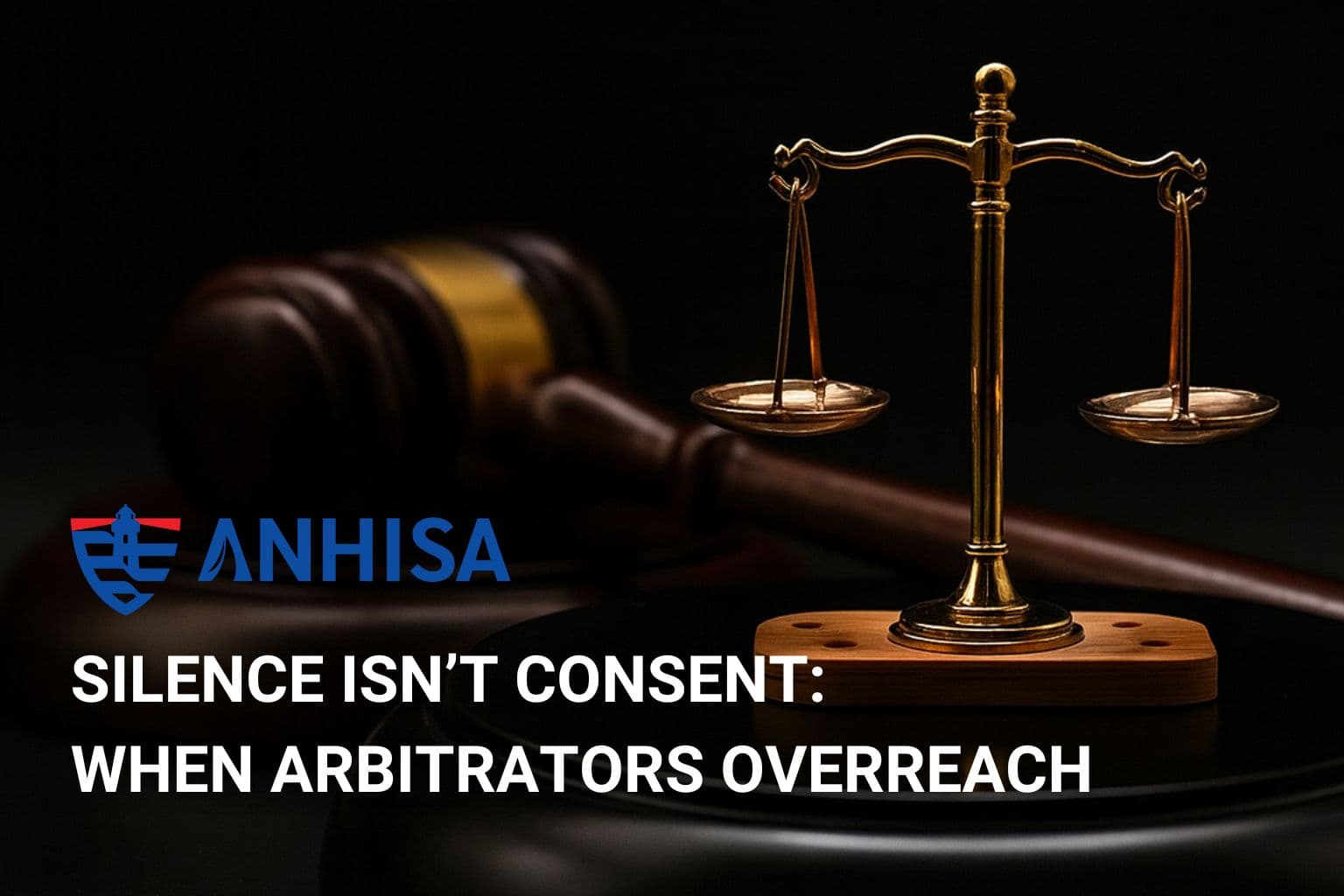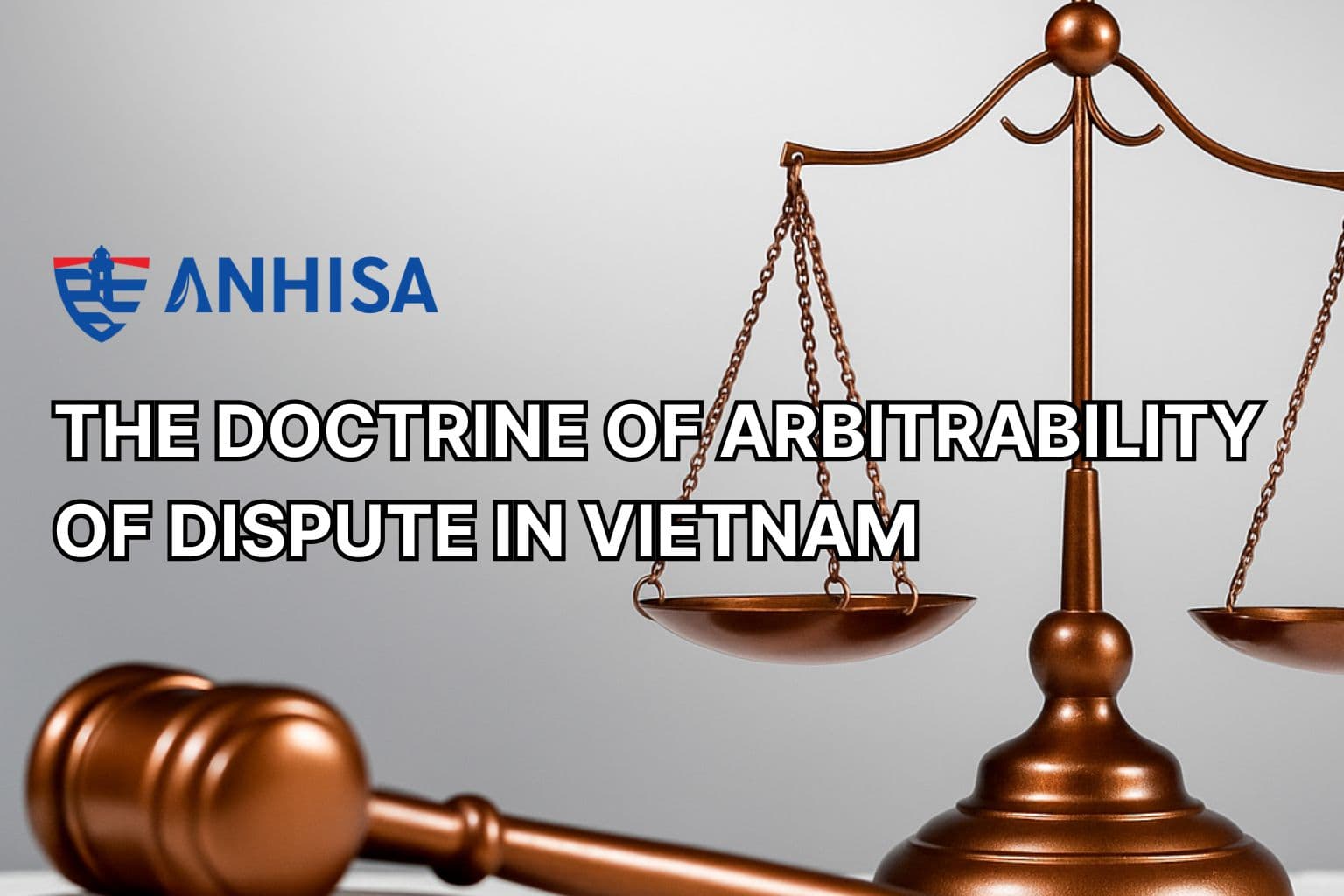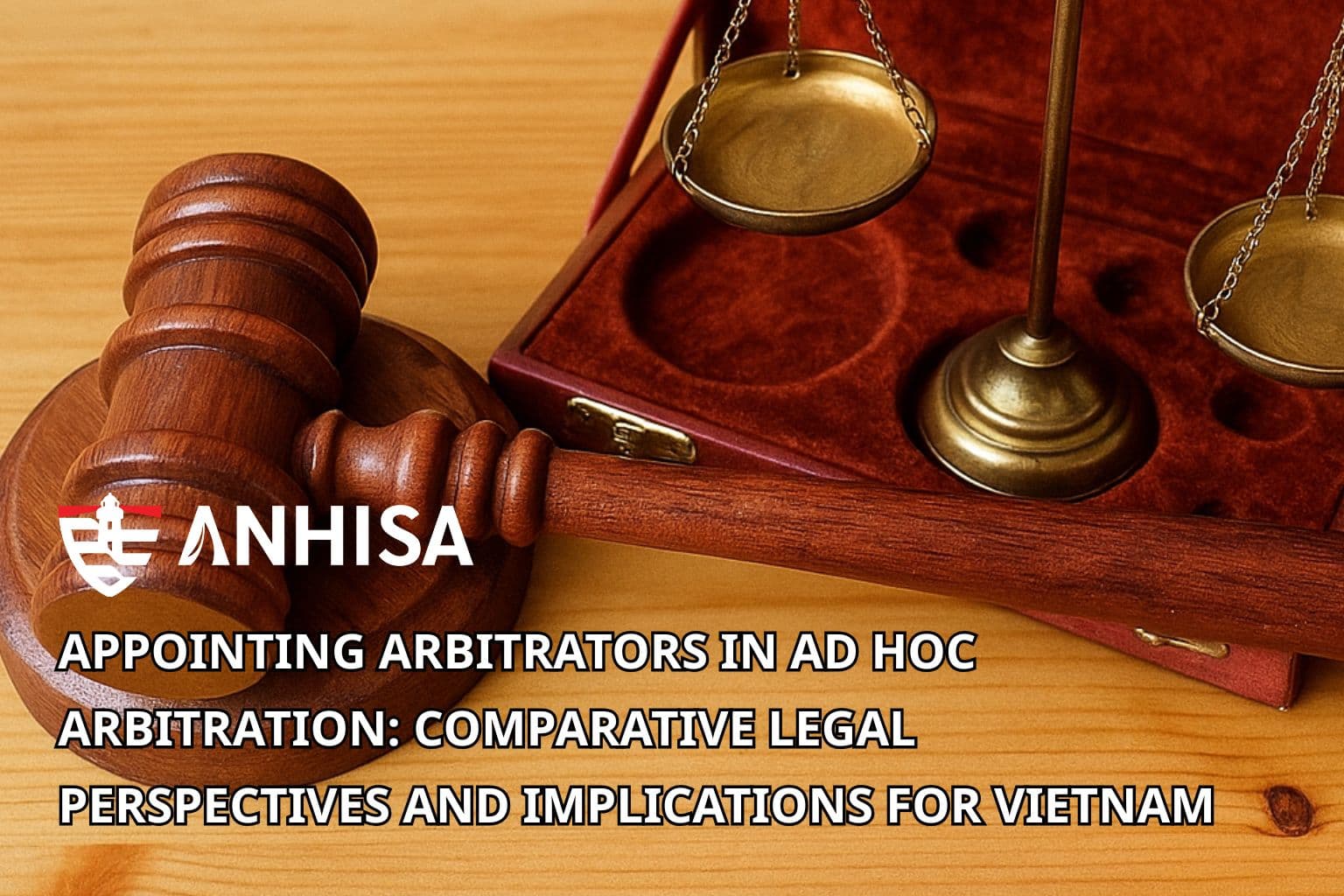APPOINTING ARBITRATORS IN AD HOC ARBITRATION: COMPARATIVE LEGAL PERSPECTIVES AND IMPLICATIONS FOR VIETNAM
October 08, 2025
Foreword
Arbitration is becoming increasingly favored in both international and domestic commercial practice. Businesses and investors now prefer arbitration over litigation because it offers flexibility, confidentiality, and cross-border enforceability. Within this broad framework, ad hoc arbitration has attracted particular attention for the high degree of autonomy it grants to the disputing parties. It allows them to tailor almost every aspect of the proceedings – from the number and qualifications of arbitrators to the language, seat, and procedural timetable. This autonomy can be especially advantageous in complex or specialized disputes, where parties seek greater control over procedural design and the expertise of the arbitral tribunal.
However, this very flexibility also entails significant challenges. The effectiveness of ad hoc arbitration depends heavily on the cooperation and good faith of the parties and their counsel, particularly in the appointment of arbitrators. The constitution of the arbitral tribunal forms the cornerstone of any ad hoc proceeding – it is the essential precondition for the arbitration to move forward. As Redfern & Hunter observe, “Only when an arbitral tribunal is in existence and a set of rules has been established will an ad hoc arbitration be able to proceed.” Accordingly, if one party refuses to cooperate in appointing arbitrators, the entire process may be delayed or even brought to a standstill. For this reason, parties drafting an ad hoc arbitration agreement must give careful attention to specifying a clear and workable method for appointing arbitrators from the outset; otherwise, the arbitration risks collapsing before it even begins.
Mechanisms for appointing arbitrators in ad hoc arbitration
Party agreement
The most effective and commonly preferred mechanism for appointing arbitrators in ad hoc arbitration is for the parties to specify detailed appointment procedures in the arbitration clause or in a separate agreement. Such provisions may, for instance, stipulate that the dispute shall be decided by a sole arbitrator jointly appointed by the parties, or that each party shall appoint one co-arbitrator within a defined timeframe, and that the two co-arbitrators will then jointly select the presiding arbitrator. Alternatively, the clause may establish a shortlist procedure or designate an appointing institution to act solely for the purpose of making appointments, without administering the case. Pre-agreed panels or carefully drafted stepwise procedures significantly reduce the risk of deadlock and delay. In practice, many agreements also incorporate the default mechanism set out in Article 8.1 and Article 9.1 of the UNCITRAL Arbitration Rules – where each party appoints one arbitrator and the two co-arbitrators choose the presiding arbitrator – as a reliable fallback in the absence of a specific arrangement.
Agree on appointing authorities and institutions acting as appointments-only providers
Even in ad hoc cases, parties frequently choose to vest an institutional body with appointment authority without otherwise subjecting the dispute to full institutional administration. Leading institutions explicitly provide “appointing authority” or “appointments-only” services to ad hoc proceedings:
- The International Court of Arbitration (“ICC”): the ICC offers a formal “Rules of ICC as Appointing Authority” service to act as appointing authority in proceedings under UNCITRAL (or other) rules, and the ICC Court will appoint a sole or presiding arbitrator if the parties fail within prescribed time limits. This service is structured and backed by ICC practice in tribunal constitution.
- The London Court of International Arbitration (“LCIA”): LCIA provides “Terms and Conditions for Appointments Only” and broader appointment powers under its rules when parties request appointment services or when LCIA-related fallbacks apply.
- Secretary-General of the Permanent Court of Arbitration (“PCA”): under UNCITRAL, the PCA Secretary-General is a commonly used appointing authority, specifically named in UNCITRAL’s procedures to serve as a neutral backstop.
These services allow parties to retain the benefits of ad hoc procedure while importing institutional reliability for tribunal constitution. They also reduce the risk that a recalcitrant party will block the formation of the tribunal.
Failure to appoint: court intervention
When parties cannot reach an agreement upon the appointment of an arbitrator and where no one is expressly empowered to make the appointment for them, most legal systems empower national courts to intervene as a last resort or to direct an appointing body to act. A prominent U.S. example demonstrates this point. In Flanzman v. Jenny Craig, Inc., the New Jersey courts considered whether an arbitration agreement that did not provide a workable appointment mechanism should be enforced and who could designate the arbitrator. U.S. courts – applying the Federal Arbitration Act (“FAA”) and state arbitration statutes – have recognized that courts may designate an arbitrator where the parties’ agreement fails to supply an appointment procedure (see 9 U.S.C. §5 and related decisional law). This illustrates how courts can supply the missing link so that arbitration proceeds rather than the dispute being litigated in court.
In many civil-law jurisdictions, similar last-resort powers exist: courts may appoint an arbitrator or authorize a named institution to do so.
The legal architecture differs (and so do the practical thresholds for intervention), but the pragmatic objective is shared – prevent stalemate and give effect to the parties’ agreement to arbitrate.
Additionally, in jurisdictions with developed arbitration frameworks such as England and Singapore, courts also have the power to authorize arbitral institutions to appoint arbitrators in ad hoc arbitrations when the parties’ agreed procedure fails. Under English law, Section 18 of the Arbitration Act 1996 allows the court to take any necessary steps to secure the appointment of the tribunal, which, in theory, includes directing an arbitral body to make the appointment. Singapore has a similar approach, Section 8(2) of the International Arbitration Act 1994, read together with Article 11(3) and (4) of the UNCITRAL Model Law, the High Court may delegate the power to appoint arbitrators to the Chairman of the Singapore International Arbitration Centre (SIAC), or to any other person designated by the Chief Justice.

The Legal Framework for Ad Hoc Arbitration in Vietnam
Vietnam formally recognized ad hoc arbitration under its Law on Commercial Arbitration 2010 (“LCA 2010”). Article 3.7 defines ad hoc arbitration as “a form of dispute resolution conducted under this Law and according to the procedures agreed upon by the parties.” This definition embodies one of the central principles of arbitration: party autonomy. Complementing this, Article 41 of the LCA 2010 outlines in detail the process for constituting an arbitral tribunal in ad hoc proceedings, including provisions that empower the Court to appoint arbitrators in cases where the parties fail to reach an agreement or do not make the necessary appointments.
The first ad hoc arbitration case handled by VIAC under UNCITRAL Rules
A landmark illustration of ad hoc arbitration in practice emerged in VIAC’s first ad hoc case conducted under the UNCITRAL Arbitration Rules, administered with the support of Vietnam International Arbitration Centre (“VIAC”). The dispute arose from an international architectural design services contract in which the parties agreed to resolve any disputes in accordance with the UNCITRAL Rules. When a dispute later occurred, the parties failed to agree on the sole arbitrator. In September 2015, the Ho Chi Minh City Court intervened and appointed Professor Le Dinh Vinh, then President of VIAC, as the sole arbitrator. The arbitral tribunal rendered an award in late 2016, ordering the respondent to pay approximately USD 33,125 in damages and USD 2,630 in costs, with VIAC providing administrative assistance for the proceedings.
The respondent subsequently challenged the award, arguing that under the UNCITRAL Rules, only the PCA in The Hague could serve as appointing authority, and thus the Vietnamese court lacked jurisdiction to make the appointment. The appellate court, however, dismissed this challenge. It reasoned that although the arbitration agreement did not specify an arbitral institution, both parties had elected to apply the UNCITRAL Rules and to conduct the arbitration with VIAC’s logistical assistance. Accordingly, the tribunal was deemed a valid ad hoc arbitral tribunal under Vietnamese law, and the award was final and enforceable. The court therefore granted registration of the award for enforcement.
This case marked a significant milestone not only in the recognition and enforcement of ad hoc arbitration in Vietnam but also in affirming the capacity of Vietnamese arbitrators to integrate international standards with remarkable competence. VIAC, as well as Professor Le Dinh Vinh, demonstrated exceptional initiative and professionalism in adopting and applying the UNCITRAL framework within the Vietnamese legal context—effectively bridging the gap between global arbitration practice and domestic procedural realities. Their handling of the case reflected a sophisticated grasp of comparative arbitration law and a pragmatic ability to harmonize it with the LCA 2010, thereby reaffirming VIAC’s pioneering role in modernizing Vietnam’s arbitration landscape and aligning it with international best practices.
Limited Practice of Ad Hoc Arbitration in Vietnam
Despite this progress, ad hoc arbitration remains relatively rare in Vietnam. Aside from the case reported publicly by VIAC, , while most arbitrations continue to be conducted under the institutional rules and panels of centers such as VIAC. Scholars and practitioners have observed that although the legal foundation for ad hoc arbitration is firmly in place, its practical application remains limited due to both objective and subjective factors – ranging from a lack of familiarity among practitioners to procedural uncertainties and institutional dominance in Vietnam’s arbitration landscape. Some main reasons explain this limited use:
- Limited experience and expertise: Arbitration in Vietnam remains a relatively young and highly specialized field. Knowledge of international arbitration practice – let alone ad hoc arbitration – is still developing. Because ad hoc arbitration lacks a permanent secretariat or administrative support, the parties and their counsel must organize and manage the entire procedure themselves. Where one or both parties are unfamiliar or inexperienced with international arbitral procedures, they may find the process overly complex or daunting, and may lack the confidence or expertise to conduct an efficient ad hoc proceeding.
- The dominance of institutional arbitration: The majority of commercial disputes in Vietnam are referred to reputable arbitral institutions such as VIAC, whose rules and procedures are well-established and widely trusted. The institutions provide important administrative and logistical support, including procedural guidance, facilities, and secretarial assistance, which ensure efficiency and predictability. As a result, ad hoc arbitration is often perceived as less secure and more procedurally risky. The dominance of institutional arbitration, therefore, discourages parties from opting for ad hoc mechanisms.
- Complex and risk-prone enforcement procedures: Unlike institutional arbitration, ad hoc awards in Vietnam are subject to additional procedural steps before becoming enforceable. After an ad hoc award is issued, the prevailing party must, within one year, prepare and submit a registration to the competent court in accordance with Article 62 of the Law on Commercial Arbitration. Only after receiving the court’s decision confirming registration may the party proceed to request enforcement before the civil judgment enforcement authority. Failure to complete this step within one year may deprive the award of enforceability under Article 66.2 of the LCA 2010. Consequently, the ad hoc award would not be protected by the court or enforcement agencies in the same way as an institutional award. This procedural risk further discourages parties from choosing ad hoc arbitration.

In summary, although ad hoc arbitration offers considerable flexibility and autonomy, it remains underutilized in Vietnam due to limited practitioner experience, the practical advantages of institutional arbitration, and procedural complexities associated with ad hoc awards. Nonetheless, the pioneering efforts of VIAC in the country’s first ad hoc case under the UNCITRAL Rules have laid a crucial foundation for the continued evolution and acceptance of this form of arbitration in Vietnam’s legal landscape.
Recommendations
To encourage and strengthen the practice of ad hoc arbitration in Vietnam, several reforms and practical measures could be considered:
- Allow Court to authorize arbitral institutions to appoint arbitrators: The Law on Commercial Arbitration could explicitly provide that courts may delegate the authority to appoint arbitrators in ad hoc cases to reputable arbitral institutions such as VIAC or other recognized centers, upon the parties’ request. This approach mirrors established international practices – for instance, Singapore under the International Arbitration Act 2005 (“IAA”) – where credible institutions are empowered to act as appointing authorities. Such a mechanism would enhance procedural certainty and organizational support for ad hoc arbitration.
- Establishing “appointments-only” services at arbitral centers: Institutions such as VIAC, STAC, or the Law Arbitration Center could introduce specialized “appointments-only” services similar to those offered by the ICC and LCIA. Under this model, parties enter into an agreement with the institution for the sole purpose of appointing arbitrators in accordance with pre-established procedures. Both the ICC and LCIA maintain provisions allowing them to make appointments in ad hoc arbitrations, offering parties an efficient and reliable mechanism for constituting the tribunal. If VIAC were to provide a similar service – supported by a transparent roster of arbitrators and streamlined selection procedures – parties would likely feel greater confidence in opting for ad hoc arbitration.
- Promoting training and guidance: On the practitioners’ side, lawyers should proactively advise clients on potential procedural issues, prepare shortlists of arbitrator candidates, and develop contingency plans to address potential non-cooperation from the opposing party.
These recommendations aim to create a more conducive environment for the development of ad hoc arbitration as a viable and effective dispute resolution mechanism in Vietnam. With the legal framework for ad hoc arbitration already in place, institutional innovation and practical guidance will be essential to its broader adoption and successful implementation in the years to come.
Conclusion
The continued refinement of Vietnam’s legal framework in line with international standards is essential to minimizing the procedural risks associated with the appointment of arbitrators in ad hoc proceedings. Such development forms the foundation for a more robust arbitration environment – one in which ad hoc arbitration can be increasingly and confidently utilized within the country. A well-structured system would allow parties acting in good faith to resolve disputes more swiftly, flexibly, and cost-effectively, thereby fostering a culture of procedural autonomy and professional trust.
Achieving this vision requires not only deeper academic and practical engagement from Vietnamese lawyers and arbitrators, but also closer institutional cooperation between the courts and arbitral centers – both domestic and international. Legislative refinements, judicial consistency, and proactive institutional initiatives will all be critical in building a coherent and arbitration-friendly framework.
As confidence in ad hoc arbitration grows, its influence as an alternative dispute resolution mechanism will likewise expand, positioning Vietnam as an arbitration-friendly and trustworthy jurisdiction in the region – one capable of harmonizing international best practices with domestic legal realities while maintaining the integrity and flexibility that define arbitration itself.
AUTHORS
DANG VIET ANH
Managing Partner
Mobile: (+84) 983 467070
Email: [email protected]
TRUONG CONG HONG
Senior Associate
Mobile: (+84) 909 814090
Email: [email protected]
TRAN LE ANH KHOI
Junior Associate
Mobile: (+84) 359 957007
Email: [email protected]
This article aims to furnish our clients and contacts with general information on the relevant topic for reference purposes only, without creating any duty of care on the part of ANHISA. The information presented herein is not intended to serve, nor should it be considered, as a substitute for legal or other professional advice.
ANHISA LLC AND OUR EXPERTISE
ANHISA LLC is a boutique law firm specializing in Dispute Resolution, Shipping and Aviation. Being the leading lawyers in various fields of law, our qualified, experienced, and supportive team of lawyers know how to best proceed with a case against or in relation to Vietnamese parties and are well equipped to provide clients with cost-effective and innovative solutions to their problems.
Regarding dispute resolution, we have represented Vietnamese and foreign clients in the resolution of disputes involving maritime, construction, commercial and civil matters. Our lawyers are well-equipped to offer services on a wide range of disputes and conflicts, whether cross-border or purely domestic, to appear before any Judges or Arbitral Tribunals. The firm is prepared to assist clients in designing the appropriate dispute resolution procedure to help resolve conflicts as efficiently and cost effectively as possible, which may involve combining elements of mediation and other methods such as arbitration.
Related posts

SILENCE ISN’T CONSENT: WHEN ARBITRATORS OVERREACH
November 27, 2025

PARTIES TO AN ARBITRATION AGREEMENT
October 01, 2025

THE DOCTRINE OF ARBITRABILITY OF DISPUTE IN VIETNAM
September 24, 2025
- TEL:
- Hanoi Office: +84 24 320 47609
- Saigon Office: +84 28 5416 5873
- HOTLINE:
- +84 (0) 939 117 398
- +84 (0) 983 488 380


